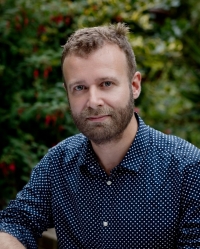Accepting ourselves
Have you ever thought "I wish I could just accept myself as I am"?

I am sure that most of us have. When we wish for self-acceptance, someone usually offers some way of making our wish come true. Religion, therapy, exercise, mindfulness - each of these promises a different way of reconciling the tensions and contradictions that we feel within ourselves.
But I wonder if this very 21st-century concept - to 'accept yourself' - is yet another demand which we cannot meet, a benign instruction which unwittingly shuts us down more than it opens things up.
Alan Watts, the writer on Zen Buddhism, sums this paradox up nicely, arguing that "we are really stuck with ourselves, and our attempts to reject or to accept are equally fruitless, for they fail to reach that inaccessible centre of our selfhood which is trying to do the accepting or the rejecting."
I am fascinated by the statements we make, like the wish we started with, that have both an "I" and a "myself" in them. They point to a division within ourselves. Listen again - "I wish I could just accept myself as I am". There is the "I" that is doing the wishing and the "myself" that is the object of that wish. It sounds like the "I" is the active part and the "myself" the barely conscious, passive part, but as Watts points out, it is the "myself" that is the hard kernel that cannot be reached, however hard "I" try.
When we enter the counselling room, we are often tempted to speak from that "I". It’s the part we think we know and understand; the conscious and familiar part that seems to be empowered and strong.
But, as Watts goes onto say, "the selfishness of the self thrives on the notion that it can command itself, that it is the lord and master of its processes, of its motives and desires."
My hunch is that the harder we try to be lord and master of our desires, the more we realise we cannot. In trying to accept ourselves, in trying to reconcile ourselves to ourselves, we run up against contradiction. If we think of the "I" as our internal spokesperson, we can see how this realisation will be humbling - humiliating, even.
Watts was a Zen Buddhist, and he claims that it is in this humility that we "find life by losing it". Put simply, when we let go of mastery and give up the conviction that we are in control of our motives and desires, that is when we grasp something more fundamental.
But wait a minute! The Zen Buddhists also say that deliberately letting go, giving up, and surrendering ourselves is the very thing we cannot do, because we eventually realise it is impossible. It is just when I discover that I cannot surrender myself that I am surrendered; just when I find that I cannot accept myself that I am accepted.
That unresolvable paradox at the heart of our being can have two outcomes. We can bang our heads against various brick walls, convinced that this time we’ll find the secret to self-actualisation, condemned once again to disappointment. Or, we can realise that within us there is a puzzle that cannot be solved, a division that cannot be repaired.
This sounds a little depressing until you realise that if this inconsistency, this internal contradiction, is at the heart of my very being, it must be at the heart of everything and everybody else in the world!
If there is no being without contradiction and inconsistency, there can be no higher authority than ourselves. Neither my parents nor my boss, God, or even Buddha is any less divided than I am.
With all its liberating potential, that’s a scary thought, but it might be one that’s worth accepting.

Find the right counsellor or therapist for you
All therapists are verified professionals
